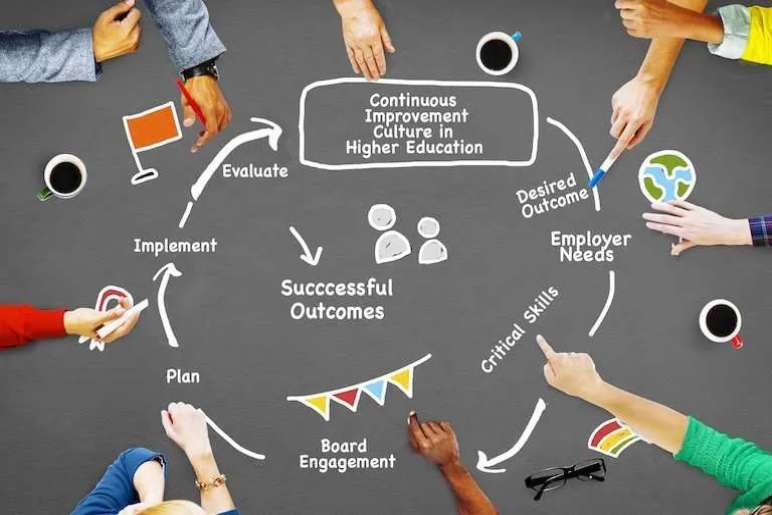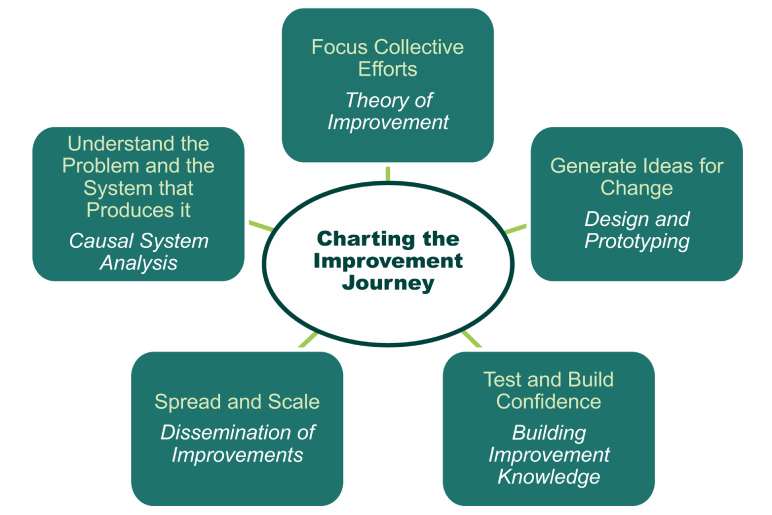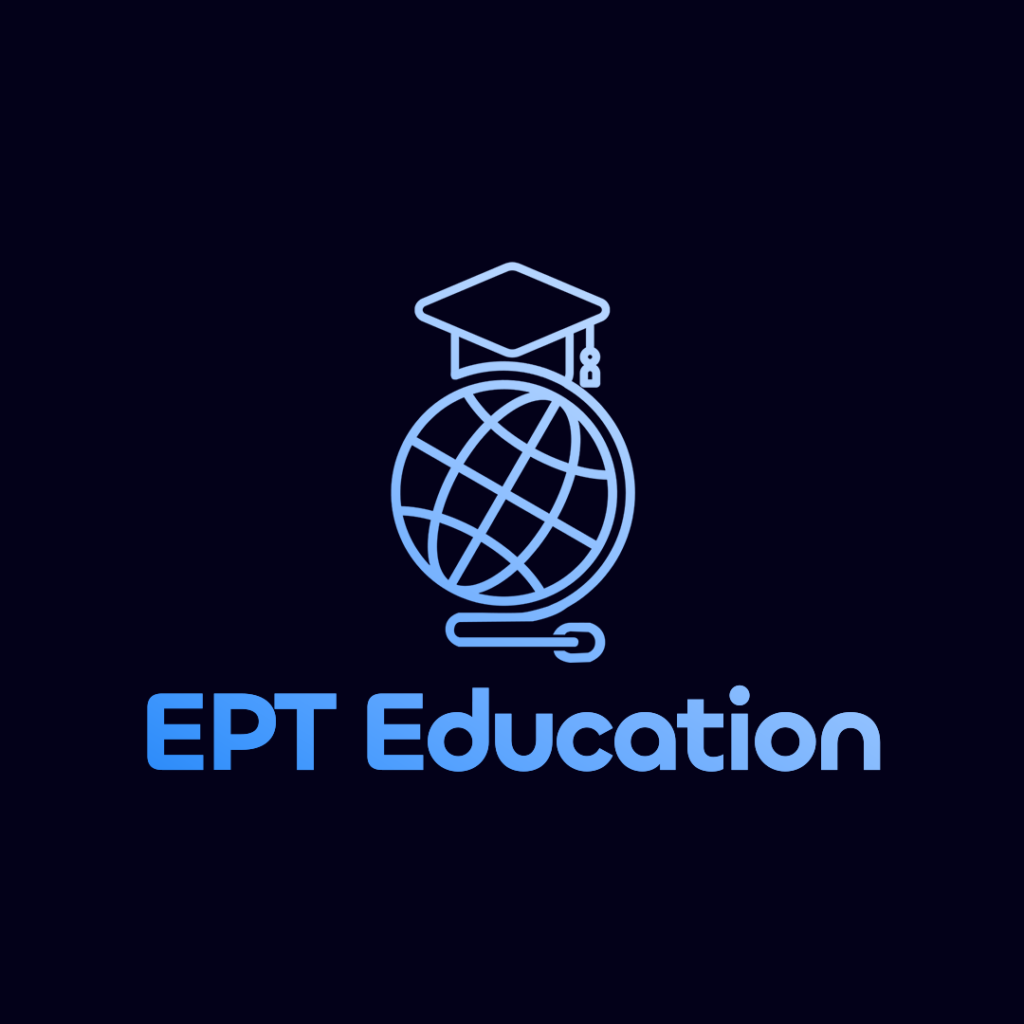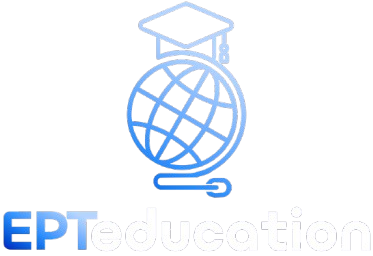In today’s rapidly evolving job market, vocational education plays a pivotal role in equipping individuals with the skills necessary for professional success. Among the various frameworks that guide vocational training, MCIE (Managing Continuous Improvement in Education) stands out as a key approach to ensuring quality and relevance in educational practices. In this blog, we delve into the essence of MCIE, its significance in vocational education, and how organizations like Ept Education are paving the way for learners to achieve excellence in this domain.
What is MCIE?

MCIE, or Managing Continuous Improvement in Education, is a systematic approach designed to enhance the quality of teaching and learning processes. This framework is particularly important in vocational education, where the primary focus is on providing hands-on training and skills that align with industry needs. MCIE ensures that educational institutions constantly evaluate and improve their curriculum, teaching methodologies, and student outcomes to meet these evolving demands.
Core Principles of MCIE
- Continuous Improvement: The cornerstone of MCIE is its commitment to ongoing enhancement. Institutions adopting this framework regularly assess their practices and implement changes to address gaps or emerging challenges.
- Stakeholder Engagement: MCIE emphasizes the involvement of all stakeholders, including educators, students, employers, and policymakers, to create a holistic educational experience.
- Data-Driven Decision-Making: By leveraging data analytics, institutions can make informed decisions that directly impact the quality of education and student success.
- Focus on Outcomes: The ultimate goal of MCIE is to improve student outcomes, ensuring they acquire the skills and knowledge needed to thrive in their chosen careers.
Importance of MCIE in Vocational Education

Vocational education is distinct from traditional academic pathways as it focuses on skill development and practical training. In this context, the relevance of MCIE cannot be overstated. Here’s why:
- Alignment with Industry Needs: Through continuous improvement and feedback loops, MCIE helps institutions align their programs with current industry standards and expectations.
- Enhanced Employability: By focusing on outcomes, MCIE ensures students are well-prepared for the workforce, increasing their chances of securing meaningful employment.
- Quality Assurance: The framework acts as a quality assurance mechanism, ensuring that vocational programs maintain high standards.
- Adaptability: MCIE enables institutions to adapt quickly to changes in the job market, such as the advent of new technologies or shifts in demand for specific skills.
How Ept Education Champions MCIE
When it comes to implementing the principles of MCIE, Ept Education is a trailblazer. This organization specializes in providing vocational training programs that are not only aligned with industry standards but also incorporate the latest advancements in education technology.
Programs Tailored to Industry Needs
Ept Education’s programs are meticulously designed to address the skills gaps in various sectors. From healthcare and information technology to construction and hospitality, their offerings ensure that students are equipped with the competencies employers are seeking.
Leveraging Technology for Better Outcomes
Technology is a significant enabler in vocational education, and Ept Education utilizes cutting-edge tools and platforms to enhance the learning experience. Virtual simulations, interactive modules, and online assessments are just a few examples of how they integrate technology to deliver superior training.
Holistic Support for Students
Recognizing that success in vocational education requires more than just technical skills, Ept Education provides holistic support to its students. This includes career counseling, soft skills training, and access to a robust network of employers.
Commitment to Continuous Improvement
In line with MCIE principles, Ept Education regularly evaluates its programs through feedback from students and industry partners. This commitment to continuous improvement ensures their offerings remain relevant and impactful.
The Role of Educators in MCIE
Educators are at the heart of the MCIE framework. Their role goes beyond imparting knowledge; they act as facilitators of learning, mentors, and evaluators. To effectively implement MCIE, educators must:
- Stay Updated: Regular professional development ensures they are equipped with the latest teaching methodologies and subject knowledge.
- Foster a Growth Mindset: Encouraging students to embrace challenges and view failures as learning opportunities is crucial.
- Utilize Technology: From virtual classrooms to digital assessments, technology should be leveraged to enhance the teaching-learning process.
- Engage with Stakeholders: Collaborating with employers and policymakers helps educators design programs that are truly aligned with industry needs.
Challenges in Implementing MCIE
While the benefits of MCIE are undeniable, its implementation is not without challenges. These include:
- Resource Constraints: Many institutions, particularly in developing regions, may lack the financial and technological resources needed to implement MCIE effectively.
- Resistance to Change: Stakeholders accustomed to traditional methods may resist the shift towards a continuous improvement model.
- Data Management: Collecting, analyzing, and utilizing data for decision-making requires robust systems and trained personnel.
Despite these challenges, organizations like Ept Education demonstrate that with the right approach and commitment, MCIE can be successfully implemented to transform vocational education.
The Future of MCIE in Vocational Education
As the demand for skilled professionals continues to grow, the importance of frameworks like MCIE will only increase. The future of vocational education lies in its ability to adapt and evolve, and MCIE provides the roadmap for achieving this.
Emerging Trends
- Personalized Learning: By leveraging data analytics, MCIE can help institutions offer personalized learning paths tailored to individual student needs.
- Sustainability Focus: Vocational programs are increasingly incorporating sustainability principles, preparing students to contribute to green economies.
- Global Collaboration: MCIE fosters collaboration between institutions across borders, facilitating the exchange of best practices and resources.
Call to Action
For students and professionals looking to excel in vocational education, embracing the principles of MCIE is a step in the right direction. Organizations like Ept Education are leading the charge, offering programs that exemplify the best practices in this field. Explore their offerings today and take the first step toward a rewarding career.
In conclusion, MCIE is not just a framework; it is a mindset that prioritizes quality, relevance, and continuous improvement in vocational education. With pioneers like Ept Education championing its principles, the future of vocational training looks bright, promising better outcomes for learners and industries alike.
Have A Look :-


